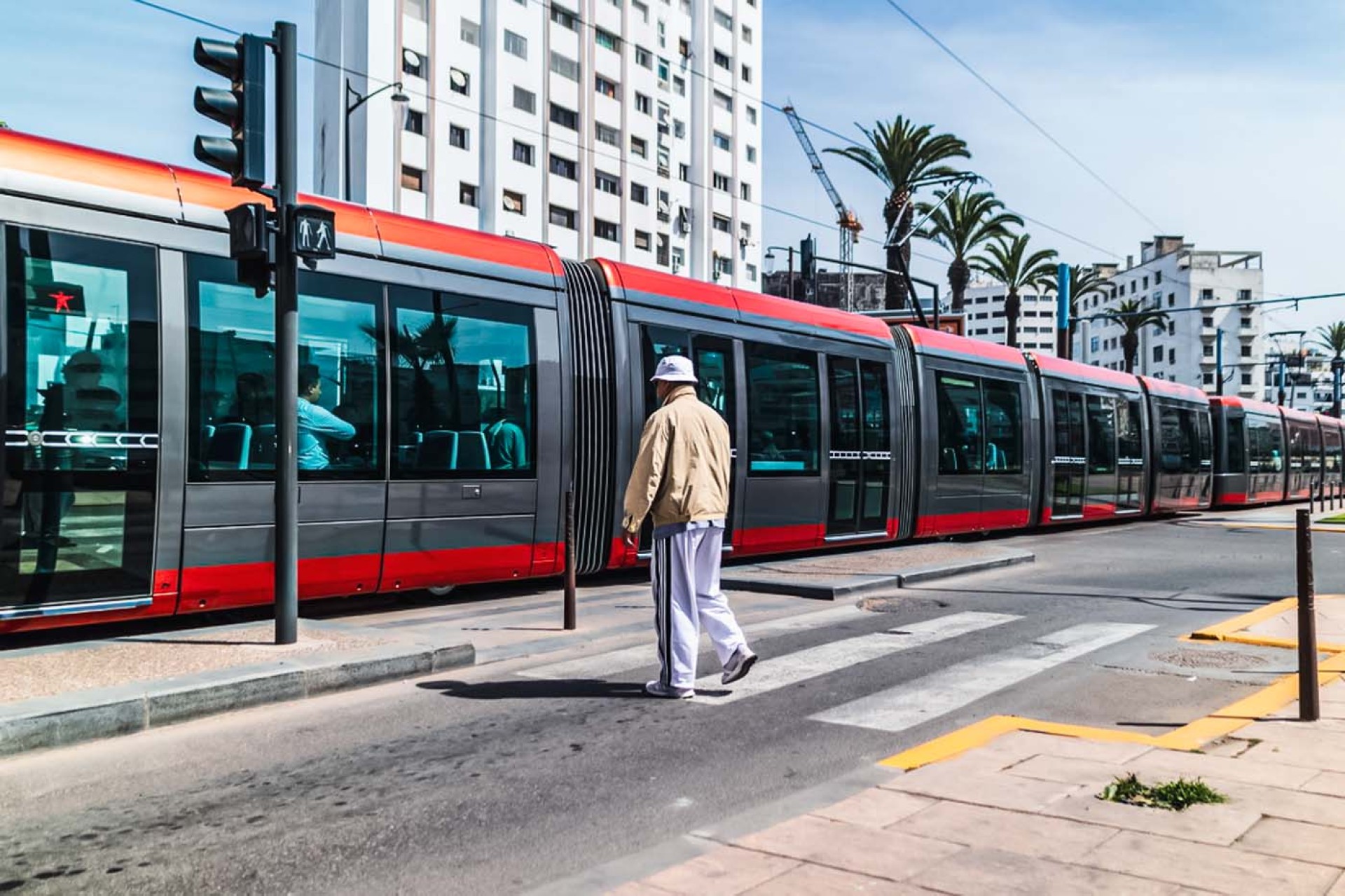
Who We Are
Our vision: A world where thoughtful mobility contributes to a desirable future.
Our mission: To design optimal mobility solutions, in support of change-makers
Roots and Wings
Founded in 1954 in Lausanne by pioneers driven by a forward-thinking vision of mobility, Transitec has always combined a strong local foundation with an international outlook. This has enabled the company to grow across multiple countries and continents, while always prioritizing the human dimension of its work, activities, and teams.
Glocal, Open to the World
Today, Transitec is a consulting firm with over 120 employees distributed across Switzerland, France, Portugal, and Morocco, united by a spirit of cohesion. Faithful to the values established since its inception, the company draws on a rich heritage and expertise that it strives to develop and pass on to its clients and partners in the field.
Drivers of Change
Guided by a bold vision of our profession and values that are reflected in daily interactions, we are a force for change, laying the foundations for sustainable mobility day by day.
Curiosity and audacity are at the heart of our approach, which combines intelligence and innovation to embrace other people, professions, and perspectives.
Crafting Strategies, From Concept to Impact
Under one roof, Transitec offers 360-degree expertise in mobility, from ideation to implementation, leveraging the combined skills of generalists and specialists.
Our political, technological, and capital independence allows us to offer solutions tailored to our clients' needs, free from downstream or upstream interests.
We, Transitec!
This pioneering vision became a reality in June 2023, following the General Assembly of Shareholders, when the group's share capital was transferred to the team working daily under the Transitec banner. This milestone was the culmination of the « We, Transitec! » project, which had been in development for over a year, marking a significant step in the company's sustainable evolution.
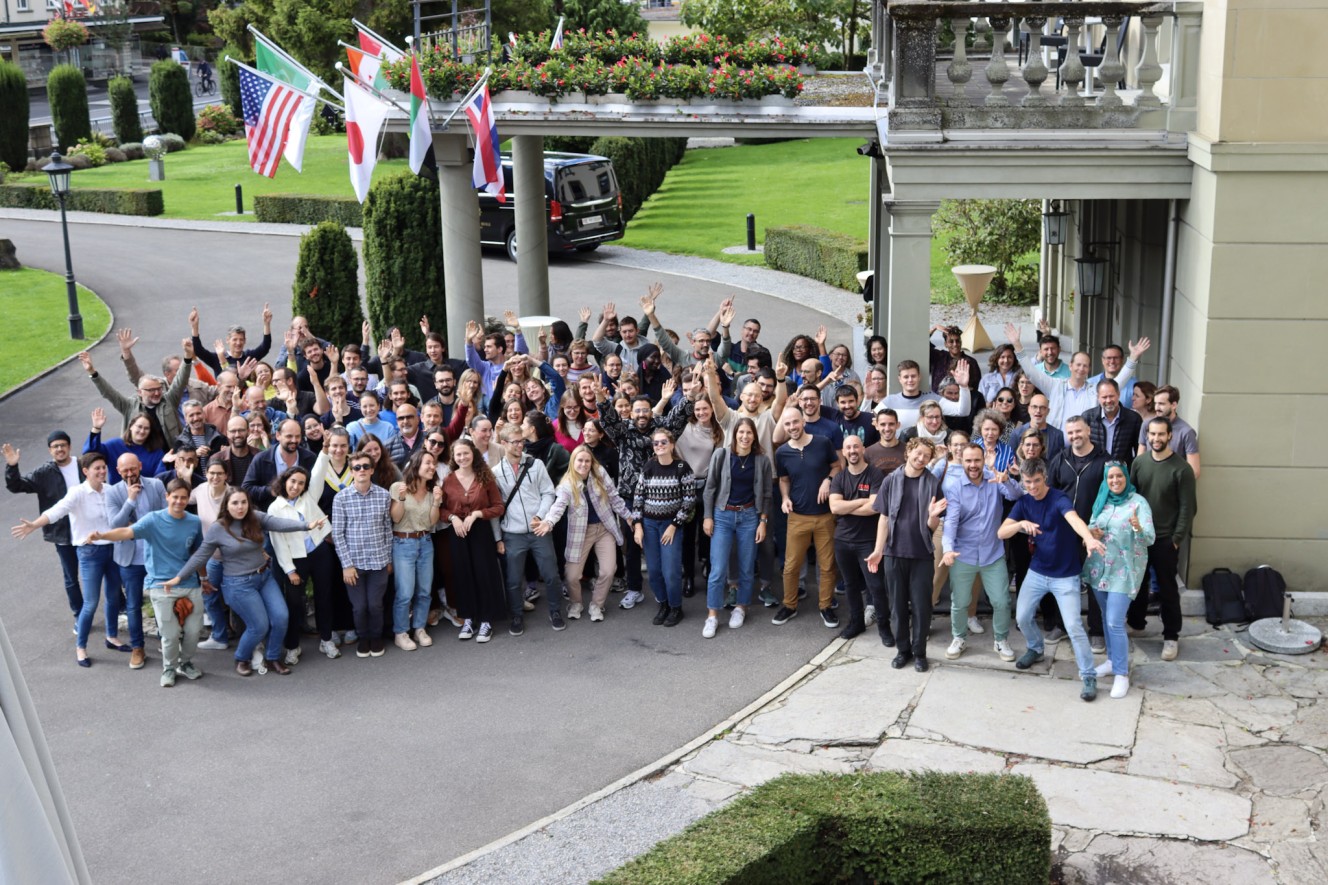
History
After completing his civil engineering studies at ETH Zurich (1936) and starting his career in the "road safety" division of the newly established "Swiss Accident Prevention Bureau (BPA)" (1938), Jean-Louis Biermann joined an expert mission to the United States.
From this country, which was far ahead in traffic management, Biermann brought back expertise and innovations that he quickly put into practice. In 1954, he opened his own office in Lausanne and actively participated in the Federal Commission for studying a national highway network. He also left his mark on mobility planning for certain cities like Geneva, by creating strategic and forward-thinking visions for the time.
A fun anecdote: An accomplished skier and a member of the Swiss Ski Federation’s Central Committee, Jean-Louis Biermann suggested in the 1940s differentiating the difficulty levels of ski slopes using coloured signs. This classification (blue, red, and black slopes) has since been adopted internationally!
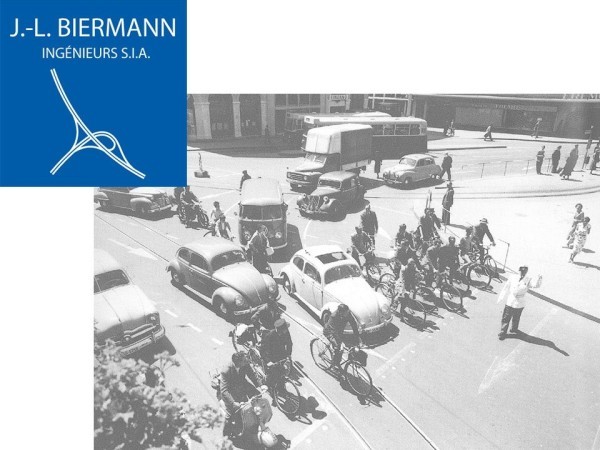
In 1972, the office was transformed into a limited company to ensure its continuity under the name Transitec-Biermann Traffic Engineers SA. The management team was expanded. Transitec-Biermann began its activities in France with an intervention in the Bouches-du-Rhône region. Following various contacts in North Africa, an opportunity arose for Transitec-Biermann to work in Tunisia on flagship projects such as the traffic and regulation plan for Tunis and the rehabilitation of the Mellassine district.
The services diversified and expanded into other modes of transport: infrastructure design, traffic light regulation, public transport, traffic plans, and more.
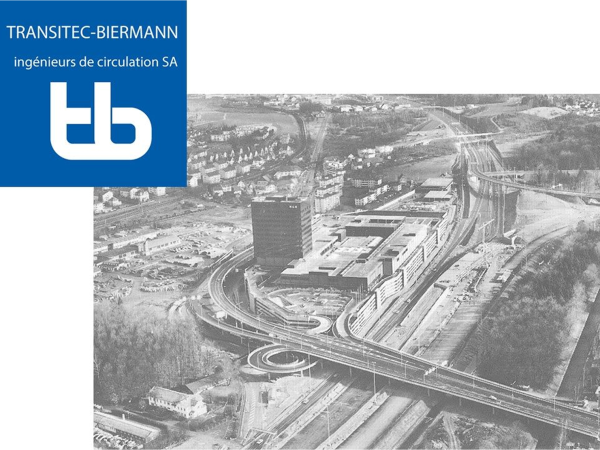
The company changed its name to Transitec Consulting Engineers under the leadership of Philippe Blanc and Philippe Glayre, who succeeded Jean-Louis Biermann after his retirement. In Switzerland, this decade was marked by a strong local presence and close collaboration with many cities in the French-speaking region.
The 1980s also marked the true beginning of activities in France, with the opening of a local agency in Lyon-Meyzieu in 1980 and significant growth in activity. As concerns and mindsets evolved, Transitec adapted and enriched its areas of intervention. Beyond design and safety, traffic calming studies emerged, and the incorporation of alternative modes to the car gained prominence in the development of strategies and public space designs.
This decade also saw major projects for Transitec: the Geneva harbor crossing, Paris-Bercy Omnisports Palace, TSOL in Lausanne, and MLT in Tunis.
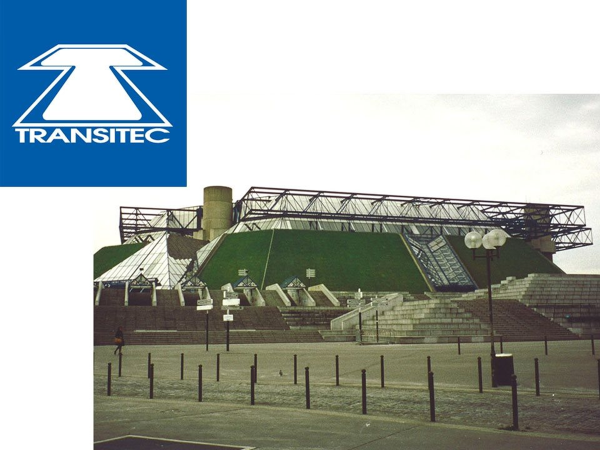
After establishing itself in France, Transitec continued its geographic diversification with the establishment of two new agencies: in Belgium and Portugal from 1998.
At the beginning of the 1990s, Lausanne and its agglomeration became the setting for a coherent and proactive approach to mobility planning, in which Transitec played a key role.
During the 1950s and 1960s, trams were considered outdated, but they made a comeback in several of the group’s intervention areas. In Geneva, Strasbourg, Lisbon-Almada, and Nancy, Transitec was heavily involved in implementing this tool, which significantly transformed urban transport offerings and public spaces.
The 1990s also saw several projects emerge in Africa, including Cotonou, Libreville, and Antananarivo.
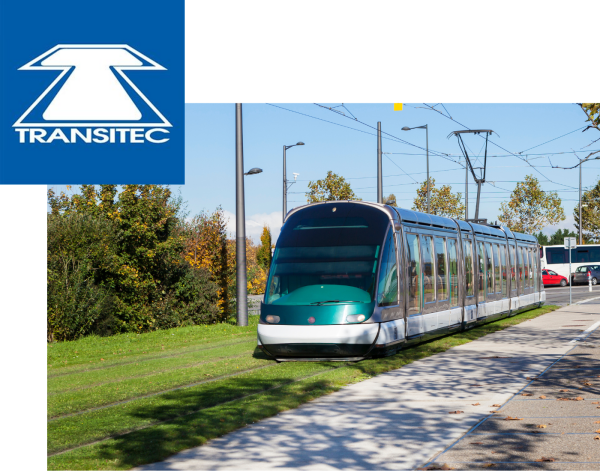
Under the expanded leadership of Jean-Marc Dupasquier, Sylvain Guillaume-Gentil, and Francis Caucheteux, Transitec opened an office in Bern in the German-speaking region of Switzerland and another in Rabat, Morocco. In addition, activities in France were consolidated with the creation of agencies in Paris and Strasbourg.
The Belgian team expanded its activities with the implementation of municipal mobility plans (PCM) and the innovative training of Mobility Advisors (CeM).
Elsewhere, tram studies and associated traffic schemes became increasingly prevalent (Geneva, Caen, Grenoble, Montpellier, Strasbourg, Nice, Barcelona, Seville, Almada, Coimbra, etc.). The connection between transport and land use planning became more significant in mobility policies. In parallel, intermodality and the management and planning of trip chains became essential in addressing acute mobility problems in city centers and suburban areas.
Transitec continued its activities in North Africa, including planning mobility in the Tangier agglomeration in Morocco.
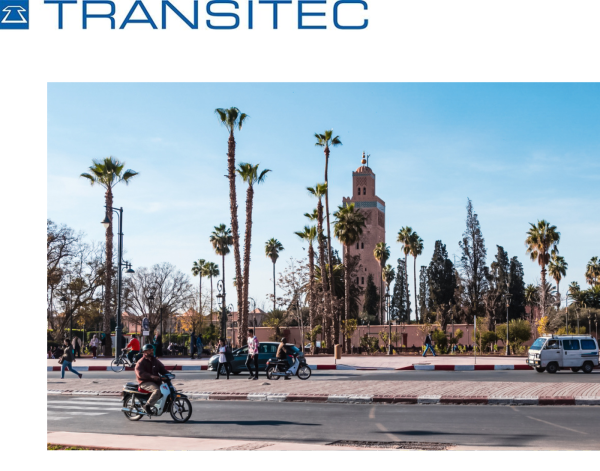
Committed to staying close to its clients and partners while also embracing numerous international missions, Transitec restructured, incorporating Martin Stucki and Christophe Diani into the group’s general management.
In the context of increasingly coveted and limited public spaces, coupled with the need to rationalize local government budgets, Transitec continued providing support and advice by seeking optimal multimodal solutions tailored to each local context. This is reflected in Transitec’s motto, “mobility optimizers,” which expresses the desire to "do more with less."
The rise of active mobility, particularly cycling, became increasingly central to urban mobility policies. On this topic, Transitec’s expertise in various contexts, particularly in the German-speaking region, proved invaluable.
The emergence of major infrastructure projects (trams, BHNS, interfaces, highway junctions), whose implementation had significant impacts on cities and agglomerations, allowed Transitec to develop real expertise in project support, ensuring the projects' realization while minimizing negative effects.
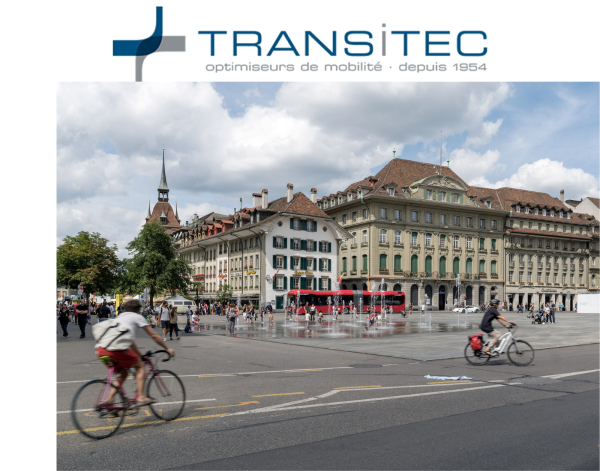
More than ever, mobility is a central issue for public policies and the population. In addition to the classic challenges that fueled Transitec’s development, new ones have emerged: the climate emergency, mobility digitization, the safety of active modes, behavioural changes, and more.
Transitec continues to develop its expertise, emphasizing renewed approaches, enhanced use of digital tools, and better integration of sociological concepts and behavioural changes. Transitec’s teams are strengthening their commitment, convinced that only a coherent approach can “move the needle” toward more sustainable and inclusive mobility.
In developing countries where Transitec continues its activities (French-speaking and English-speaking Africa, Latin America, Eastern Europe, etc.), the search for solutions adapted to local resources and contexts has earned the company a global reputation in certain fields (artisanal transport, traffic management, and active modes).
In terms of corporate governance, a “revolution” took place in 2023, with the transfer of Transitec’s ownership to its employees. With nearly 90 employee co-owners, the "We, Transitec!" project establishes the conditions to ensure the group’s long-term sustainability and independence.
Finally, starting in 2024, the arrival of Aline Renard and Fabien Garcia as the group’s co-general directors, succeeding Martin Stucki, confirms that Transitec’s evolution aligns with its reaffirmed values.
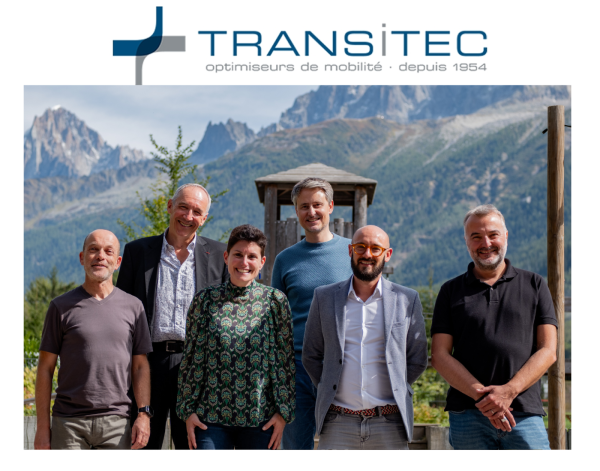
Organization of the Group
The Transitec group, although active in several countries, is a united team, federated by a single profit center logic.
The group's organization has therefore been shaped to serve this vision, according to a matrix logic. The executive committee (general management) is collegial, and its members are each responsible for entities that are not geographical, but which enable equitable management of teams, global operations and efficient innovation and expertise.
This uniqueness of the Group is an extraordinary opportunity to be able to operate outside our home territory and offer our customers a truly international experience.
Elected by the Annual General Meeting, the Board of Directors is responsible for the senior management of the Transitec Group. It acts in the best interests of the company, taking into account all stakeholders, including shareholders, employees, customers and partners. It is made up of independent members and Group employees, including the members of the Executive Committee. At present, the composition of the Group's Board of Directors is as follows:
- President: Mr Gilles Da Costa;
- Mrs Paola Ghillani;
- Mrs Fabienne Freymond Cantone;
- Mrs Pascale Rumo;
- Mr Paul Leslie;
- Mr Martin Stucki;
- Mrs Aline Renard;
- Mr Fabien Garcia;
- Mr Sylvain Guillaume-Gentil;
- Mr Christophe Diani;
- Mr Renaud Perrin;
- Mr Julien Allaire.
The Team
Commitments and Certifications
From the beginning, Transitec has positioned itself as a responsible and committed economic player and employer. This mindset, deeply rooted in the company’s history, is continually reaffirmed and remains identifiable over time. It is concretely reflected in the group’s commitments:
- In its daily practices and professional approach.
- In activities conducted alongside its core business: within associations, initiatives, and movements in which it participates.
The commitments and certifications below illustrate, in their own way, what defines the DNA of our consulting firm and how we operate.
Commitments in Social and Environmental Responsibility
- For responsible and inclusive governance.
- For social well-being.
- For an efficient and virtuous economy.
- For respect for the environment.
Transitec also holds numerous certifications, which guarantee its reliability, rigor, and commitment at all levels—both in the execution of assignments (recommendations, deliverables, project implementation, etc.) and in how studies and projects are conducted. The company is certified:
Transitec also has the Citizen Enterprise Label


Team for the Planet
Since May 2022, Transitec has committed to Team for the Planet by investing €6,000 in shares and participating in the evaluation of innovations.
"Femmes en Mouvement" Initiative:
At Transitec, we place great importance on diversity and equal opportunities. We share the observation of "Femmes en Mouvement" regarding the underrepresentation of women in our field and strive to make progress both in the profession and in considering their specific needs in public spaces. We fully support this association’s actions and are proud to be members.
Diversity Charter
To ensure equal opportunities and combat discrimination, Transitec commits to targeted actions every year. In France, the company has also joined the "Charter of Engineering for Diversity" under the Syntec collective agreement since October 2021.
As part of this commitment, Transitec annually completes an index of the commitments made in the previous year and the commitments planned for the current year.
Climate Charter
In France, Transitec is part of the "Charter of Engineering for Climate" under the Syntec collective agreement since June 2021. The company conducts an annual carbon footprint assessment and monitors the charter’s indicators accordingly.
Our Logib 2022 Equal Pay Analysis Results in Switzerland
Taking into account personal characteristics related to the job position, women at Transitec Ingénieurs-conseils SA Switzerland earned 0.1% less than men in 2022. According to the standard analysis model, there is therefore no statistically significant unexplained wage gap between women and men.
Our 2024 Gender Equality Index in France
The initiatives undertaken daily by Transitec Ingénieurs-conseils Sàrl France reflect our commitment to ensuring genuine equal opportunities for all our employees. This commitment is notably demonstrated by the results achieved in the Gender Equality Index, established under the "Avenir Professionnel" law, which measures pay gaps. In 2024, Transitec Ingénieurs-conseils Sàrl achieved a score of 89 out of 100 points on the Gender Equality Index, based on the following four criteria:
Pay gap (out of 40 points): 36
Gap in individual raises (out of 35 points): 35
Percentage of female employees receiving a raise after maternity leave (out of 15 points): not calculable
Presence of women among the company's highest earners (out of 10 points): 5/10
Contact
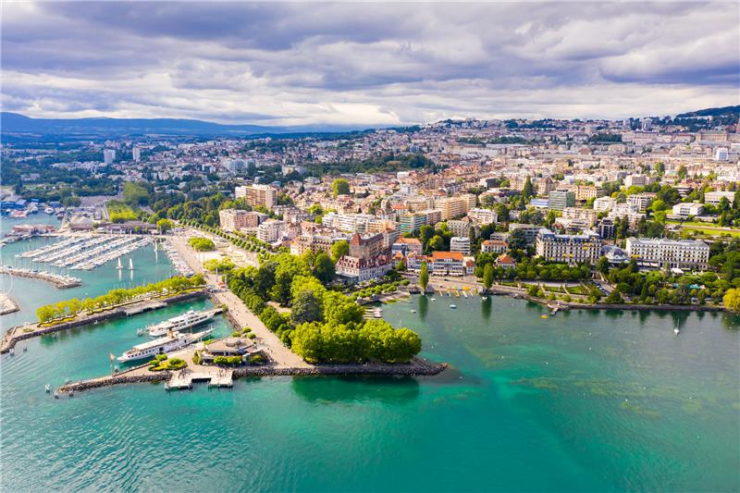
Lausanne
Avenue Auguste-Tissot 4
1006 Lausanne
Switzerland
+41 21 652 55 55